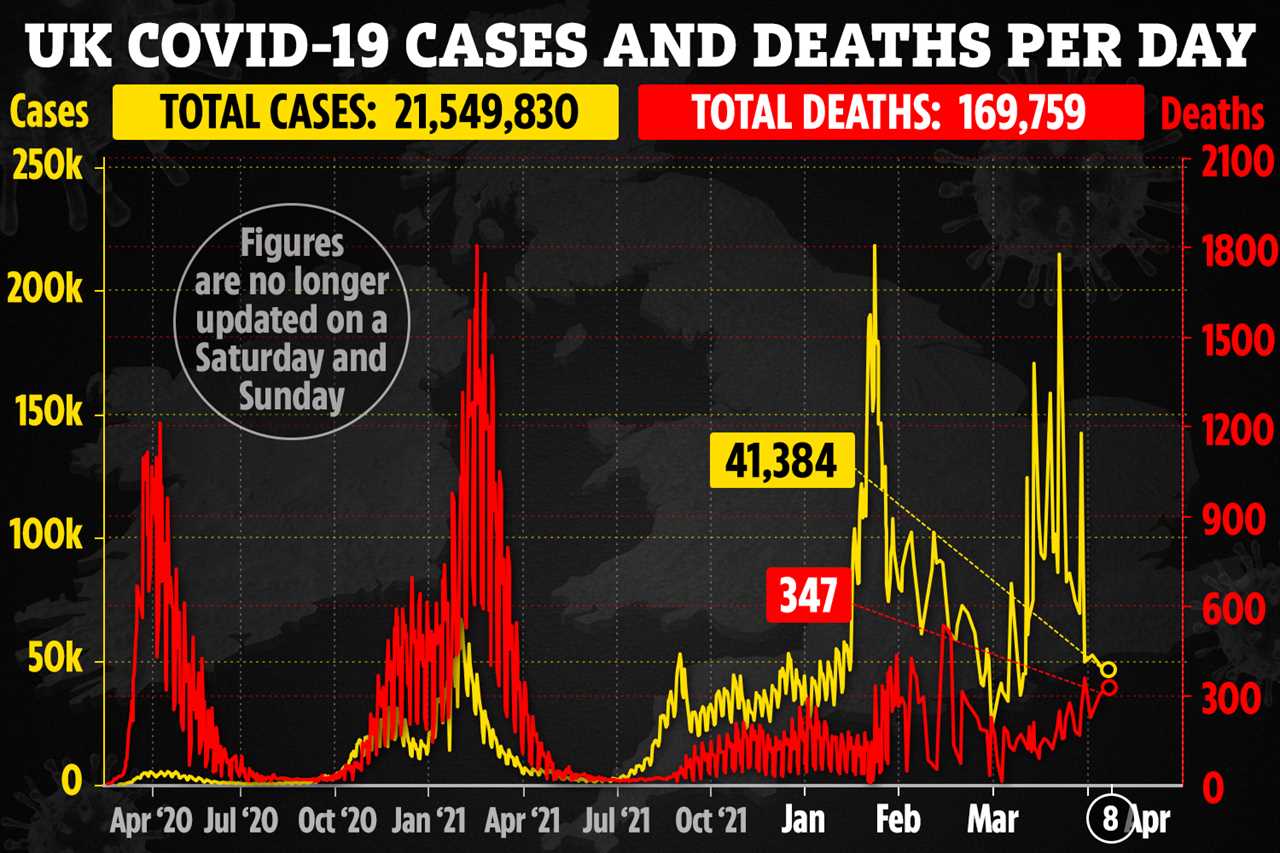CORONAVIRUS cases are ‘plateauing’ in England, with one in 13 people currently infected with the virus.
A further 41,384 people tested positive for the bug today – down 40 per cent on last week.

Experts have said that data suggests infections in older vulnerable groups are levelling off.
Vaccines will continue to protect people from severe illness and over a million people have now received a spring booster, just two weeks since the latest phase of the campaign was launched.
The NHS is continuing to urge people to come forward for a fourth dose when they become eligible, with 570,000 more set to be invited next week.
The latest rollout includes the over 75s, adult care home residents and those who are immunosuppressed aged 12 and over.
Read more on Covid-19
In the week ending April 2 cases of coronavirus increased in the East Midlands, North East, North West and Yorkshire, with the trend being uncertain in other regions.
Cases have decreased in children aged 2 to school year six and those aged 35 to 49 years.
Prof Kevin McConway, Emeritus Professor of Applied Statistics, The Open University said that the data from the Office for National Statistics (ONS) is still reporting an increase in some age groups.
He added: “All this indicates that infections may well be plateauing in England, but there’s a long way to go before I’ll be comfortable with the situation.”
Sadly today, a further 347 deaths 28 days after a positive coronavirus test were reported.
This is up from deaths this time last week, when 191 were reported.
Dr Nikki Kanani, GP and deputy lead for the NHS Covid-19 vaccination programme said it’s vital the most vulnerable get their boosters in order to protect them from severe infection.
Research from the UK Health Security Agency showed the NHS booster programme has helped prevent around 197,000 hospitalisations since mid-December.
The Omicron variants have been proven to cause a more mild disease, and public health officials have previously said that high case numbers shouldn’t translate to a surge in hospital admissions or deaths.
Prof McConway added: “Some of the people who would test positive for Covid-19 will get seriously ill, and sadly some will die.
“Not in the horrendous numbers we saw earlier in the pandemic, but the seven-day trends in hospital admissions and in deaths on the Government dashboard are upward.
“Numbers of people reporting long Covid were up too, according to an ONS release earlier this week.
“But, apart from those serious consequences, there are many reports of disruptions simply because many people are away from work due to illness. “
He added that most of these people will recover but that sickness in general ‘can’t be good for the economy.
“Learning to live with Covid doesn’t mean paying no attention to it”, he said.
As the UK continues to learn how to live with Covid, experts at the UK Health Security Agency have now pushed R rate updates to every two weeks rather than every week.
Read More on Trending In The News
The R rate in the UK currently sits between 1.1 and 1.2.
An R value between 1.1 and 1.2 means that, on average, every 10 people infected will infect between 11 and 12 other people.










